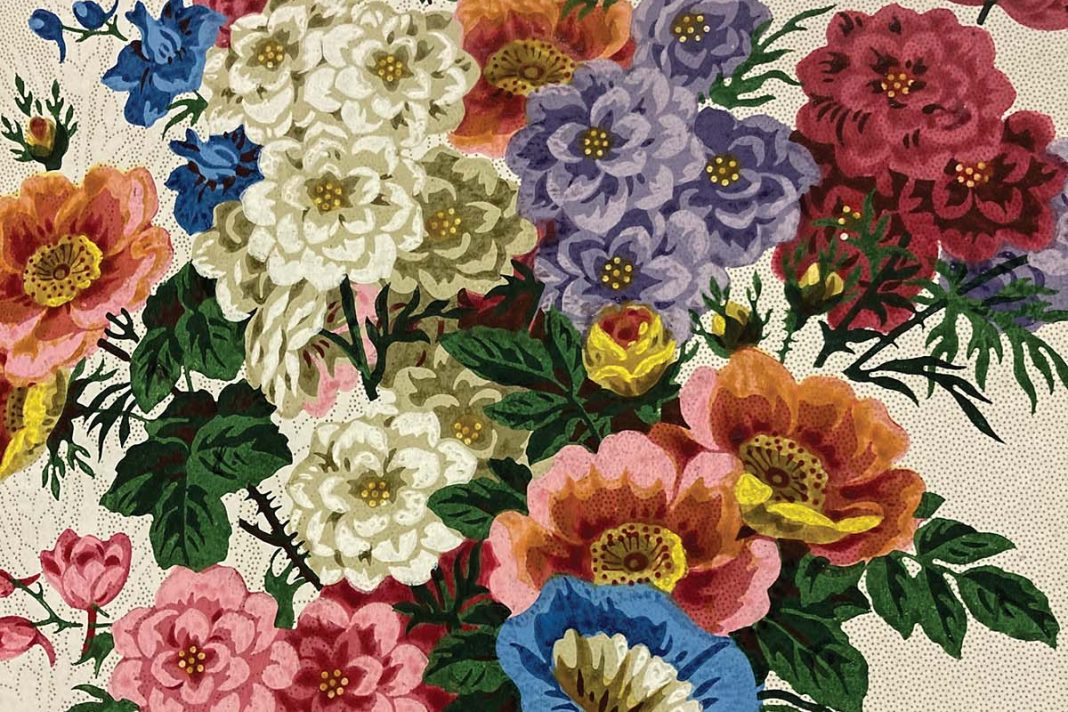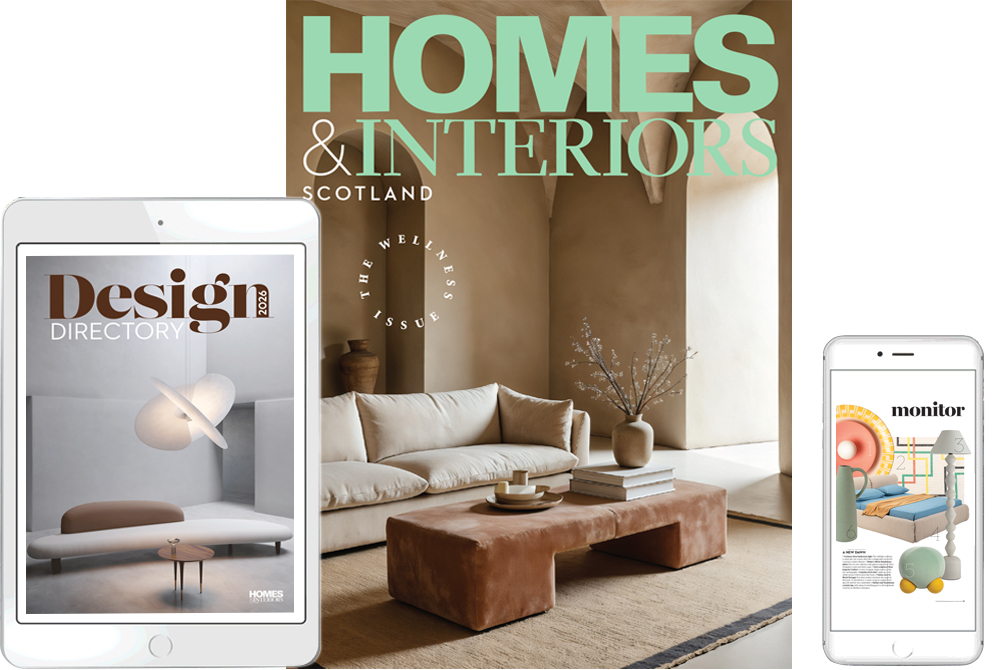Heritage and tradition are at the heart of the venerable French wallpaper company, Zuber
Today we’re utterly spoilt for choice when it comes to wallpaper. Modern printing techniques mean a design can go from concept to paper and onto your walls in record time.
It’s a long way from the medium’s early days, when motifs were monochrome, hand-drawn on a small scale and intended only for petite spaces (inside a cupboard, for example).
As time went on and aristocratic households began to demand paper to cover entire rooms, block-printing was introduced. This allowed for the creation of more intricate designs, printed one colour at a time.
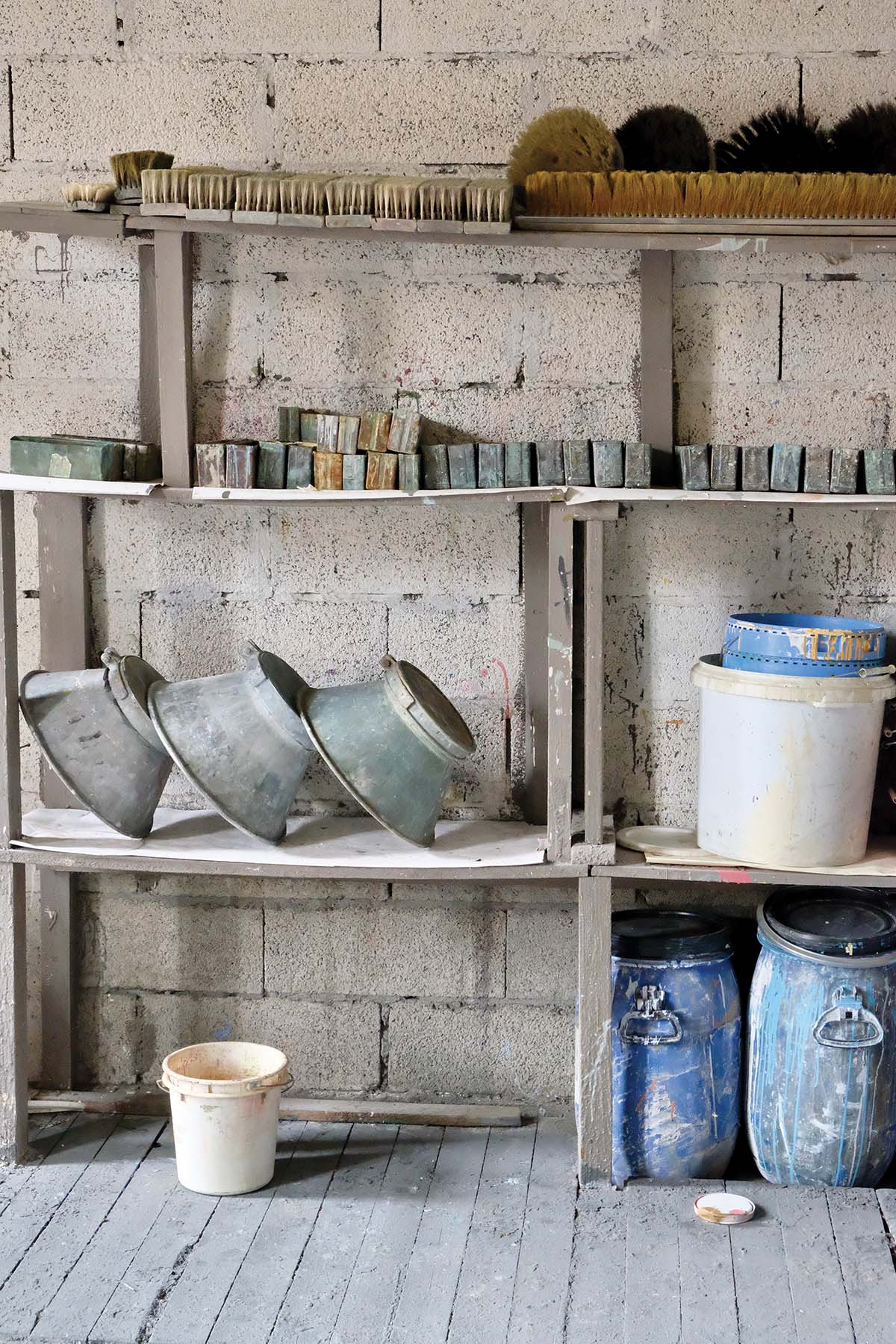
Designs became ever more ambitious as the 18th century progressed, and eventually French brand Zuber produced the world’s first panoramic wallpaper, Les Vues de Suisse. It was a game-changer.
Zuber was established in the Alsace town of Mulhouse as a textiles house in the 1780s. The creativity of Nicolas Dollfus, the owner’s son, led to the setting up of a second factory dedicated to wallpaper.
To start with, this was little more than repeat patterns and decorative elements printed on sheets of paper, but business boomed and the factory quickly needed to expand; it moved to just a few miles away to Rixheim, where it is still based.
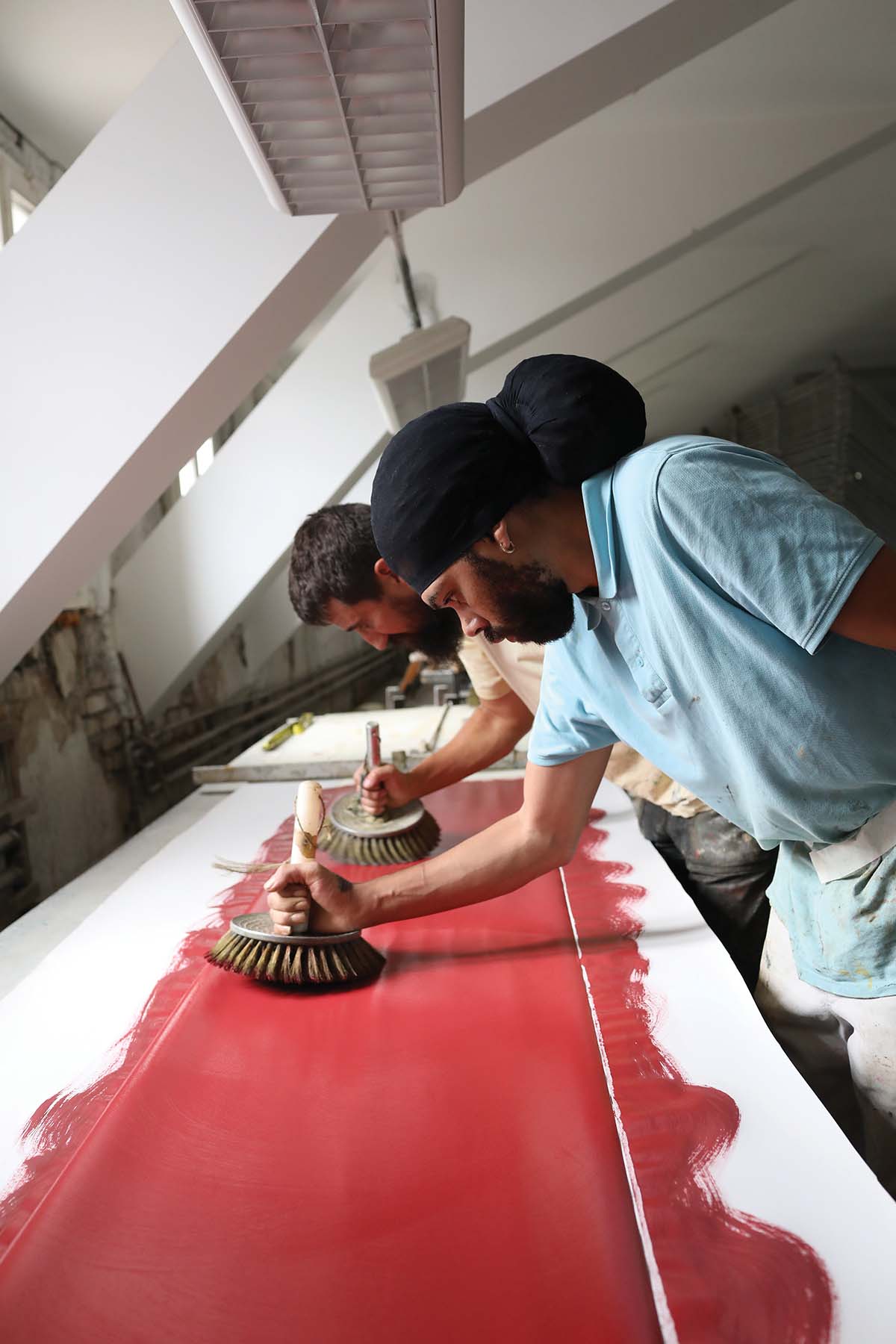
An Irish artist, Robert Barker, had created the first known panorama in 1797, a set of six large engravings showing a 360-degree view of Edinburgh from Calton Hill, which he exhibited in the city to great acclaim.
Around the same time, Louis de Carmontelle, a French garden designer, produced a series of watercolour panoramas on transparent paper and displayed them in backlit viewing boxes.
Zuber was inspired by both and soon created its own panoramic wallpaper, the famous Vues de Suisse of 1804, designed by Pierre-Antoine Mongin. It required an astonishing 1,024 woodblocks (and 150 colours), which are still used to print the pattern today.
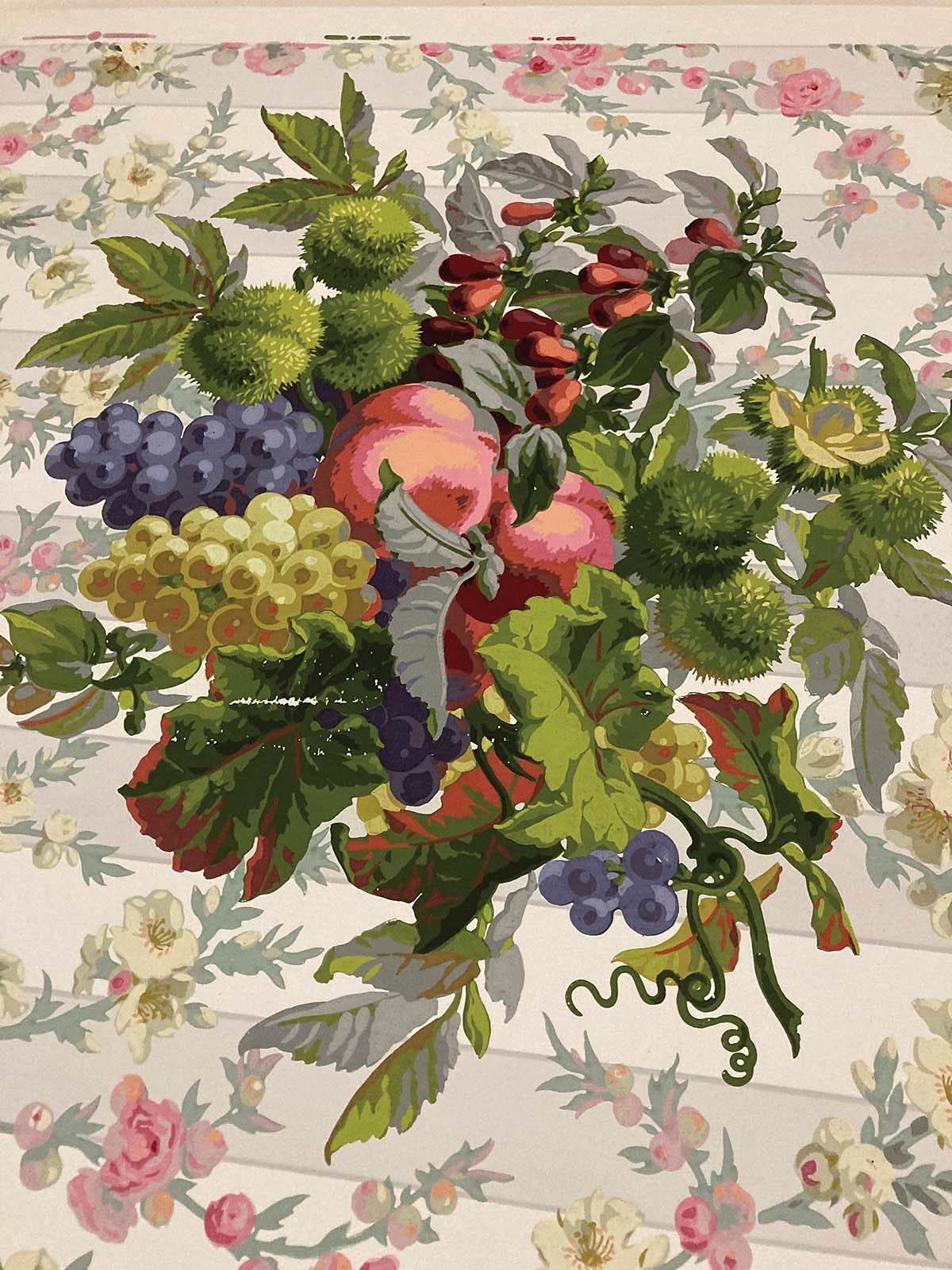
The firm started out with six workers, eventually expanding to 350 employees in the mid-19th century. Today, Zuber is the last manufacturer in the world to produce panoramic wallpaper with woodblocks and, once again, there are just six woodblock printers working on the designs. Three are dedicated to panoramas and the rest to repeat patterns.
But while it might have shrunk, the business is still doing well, and was acquired last year by Pierre Frey. “We were approached by Gisèle Chalaye, who had owned Zuber since 1985,” says Pierre Frey, grandson of the founder of the famous French fabric house. “She wanted to transfer the brand to another trusted French company in order to preserve its values and ensure its longevity. We’re proud to take up the torch.”
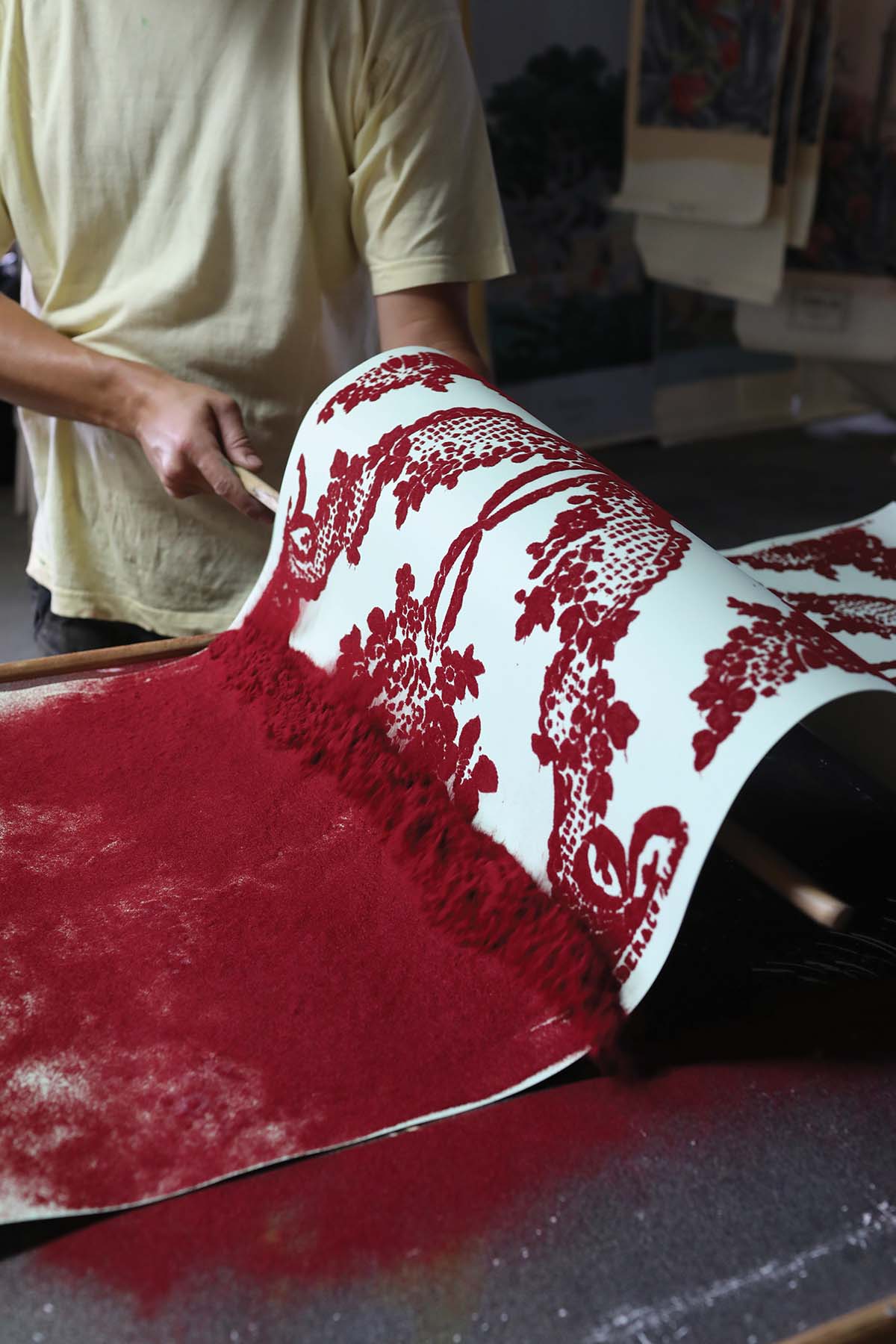
With an archive spanning over 200 years, the collection is quite the undertaking. “When we acquired Zuber, we discovered that it had created 30 scenic wallpapers, but more than 10,000 wallpapers with repeat patterns had been totally forgotten,” says Sophie Rouart, art historian and heritage manager for Pierre Frey.
“For most of them, the woodblocks had been conserved untouched since the 19th century.” The process of creating a woodblock is a long one, she continues. “We know from the archives at the Rixheim wallpaper museum that it took two years to develop Les Vues de Suisse.
“First, you work out scale and determine the number of lengths needed for the design. Then each colour in the pattern is transferred to its own set of wooden boards – over a thousand boards can be used for one design. Then the boards are engraved, which can take several months. Finally the design is printed according to colour progression.”
This would have been the case for some of Zuber’s most recognisable papers, such as the botanical Isola Bella, sunny Eldorado, and Vues de l’Amérique du Nord. The latter depicts panoramic scenes of New York and Boston harbour and is on the walls of the Diplomatic Reception Room in the White House.
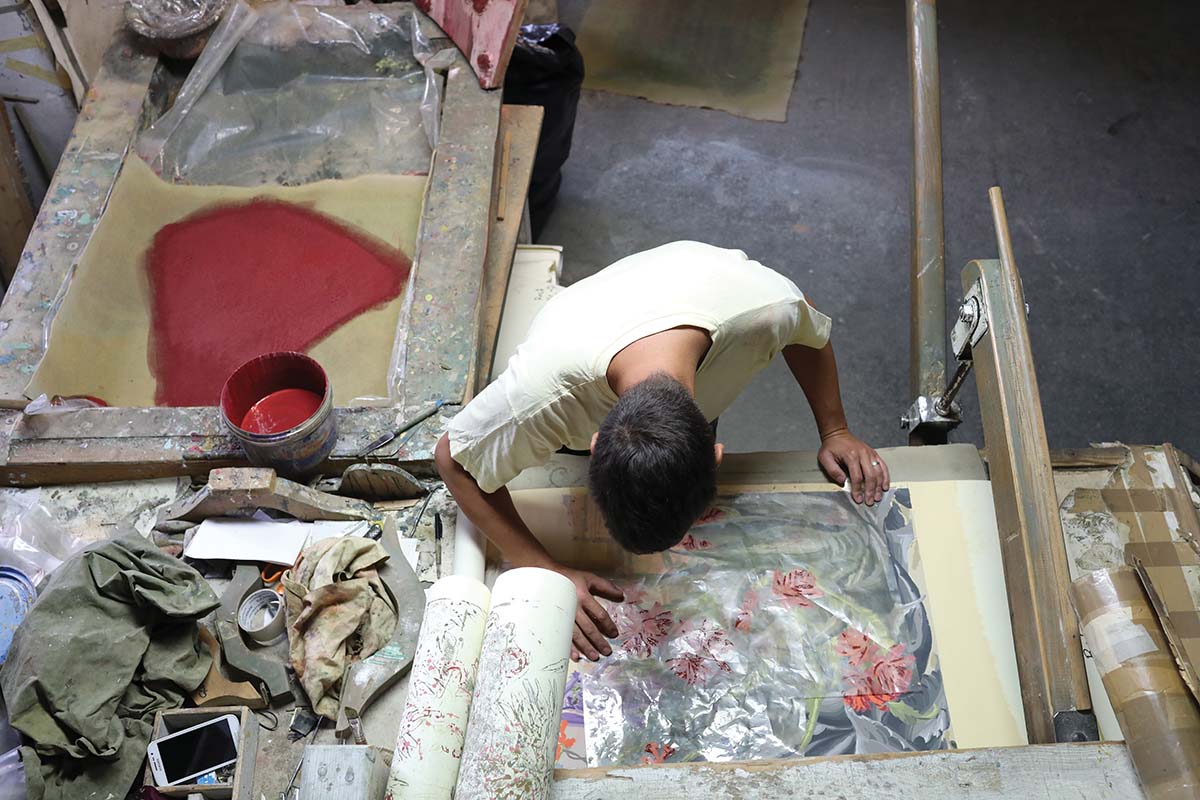
Suffice to say, there’s plenty to be excited about at Zuber. Pierre Frey is already an iconic design house with a reputation for resuscitating heritage brands; access to a whole new bank of historical designs can only be good news. “Each of the brands that make up our group retains its own identity and continues to write its own history,” Pierre says.
“Maintaining the knowhow of our forebears is essential; we want to be part of a French
tradition of excellence. Promoting these crafts to the younger generation and training them in these skills is key to preserving each of the brands.”
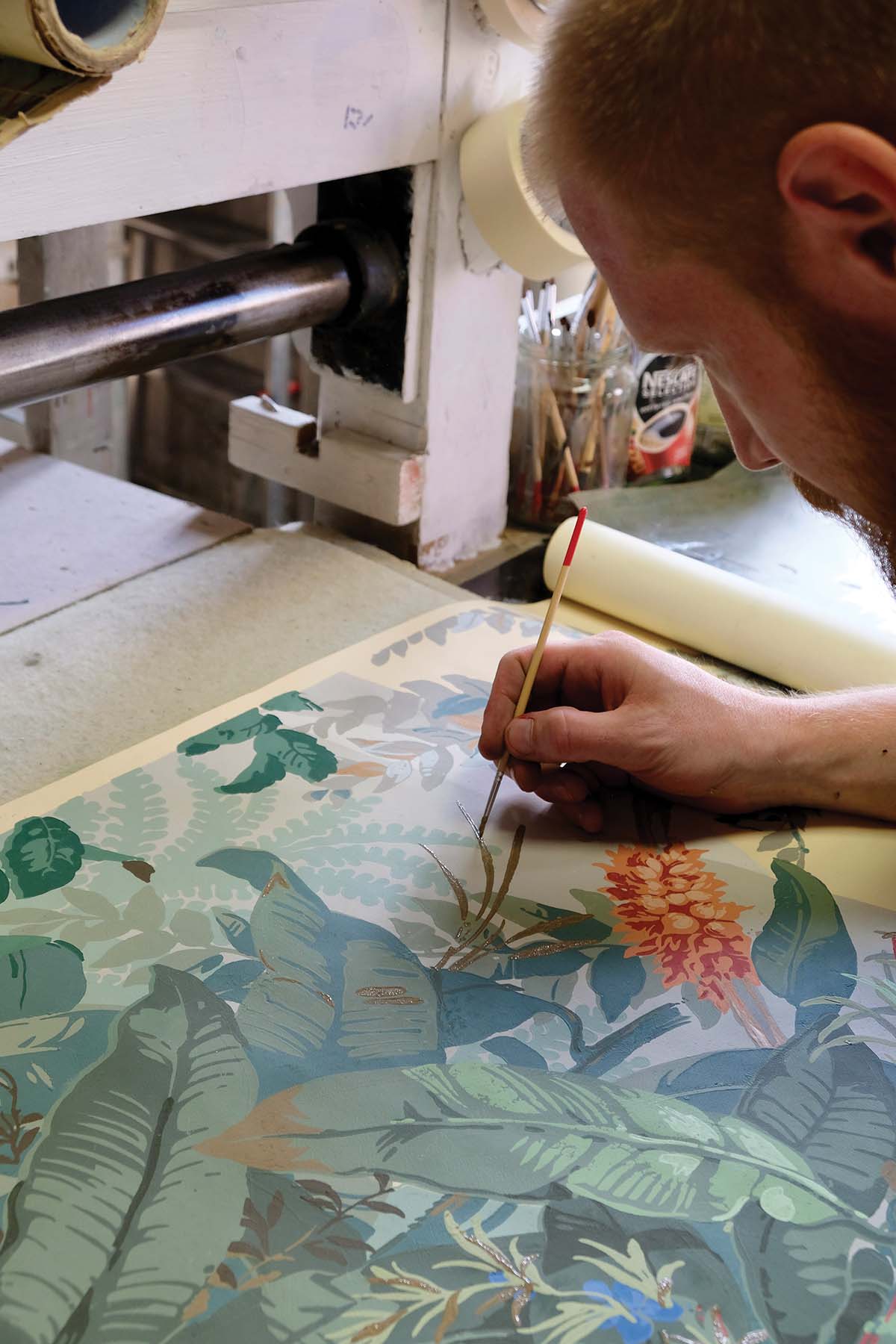
From the beginning, the success of Zuber’s scenic wallpapers was down to close collaboration with artists. Jean Zuber chose themes he thought were fashionable and then discussed how to make them happen with the artists.
Artists are just as important today – and, understandably, they tend to stick around. Two of the current printers, brothers Youssef and Khalid, have been working for the firm for 20 and 30 years respectively.
Another employee, Olivier, is just 18 but is already specialising in repeat patterns and has experience in panoramic designs.
With the recent resurgence in appreciation for the beauty of the handmade, for time-honoured craftsmanship, and for heritage, it looks like Zuber’s future is as bright as its past.


